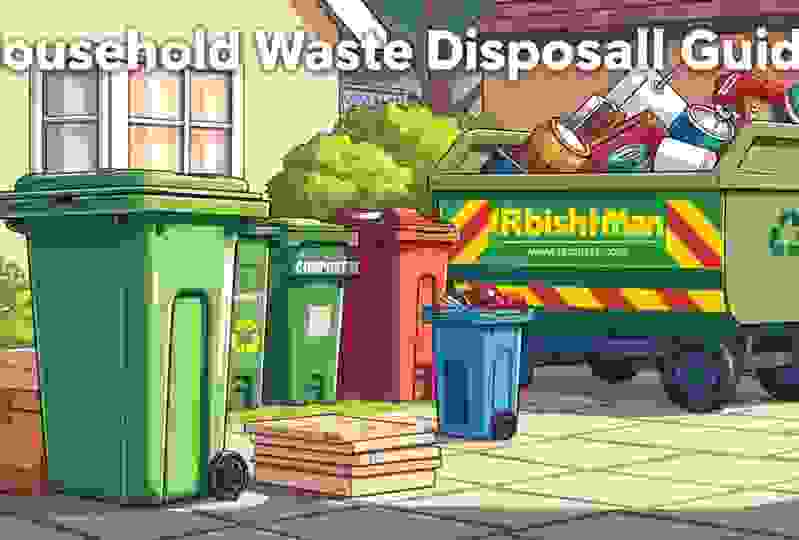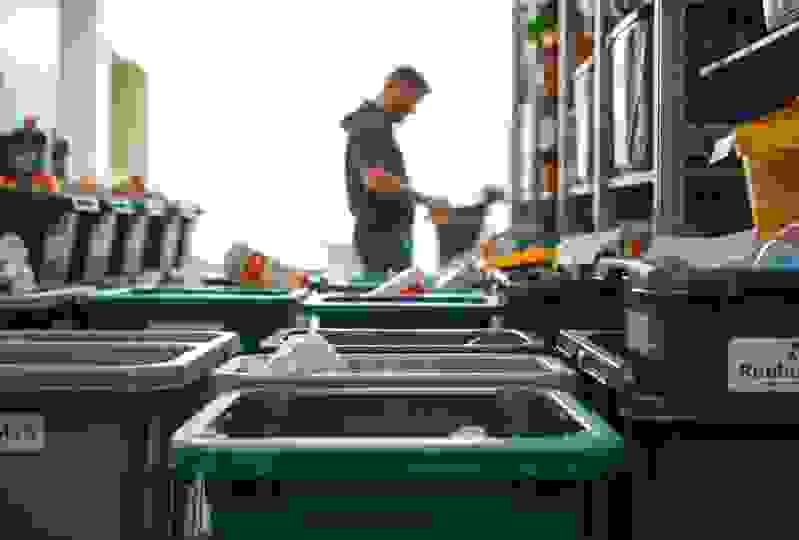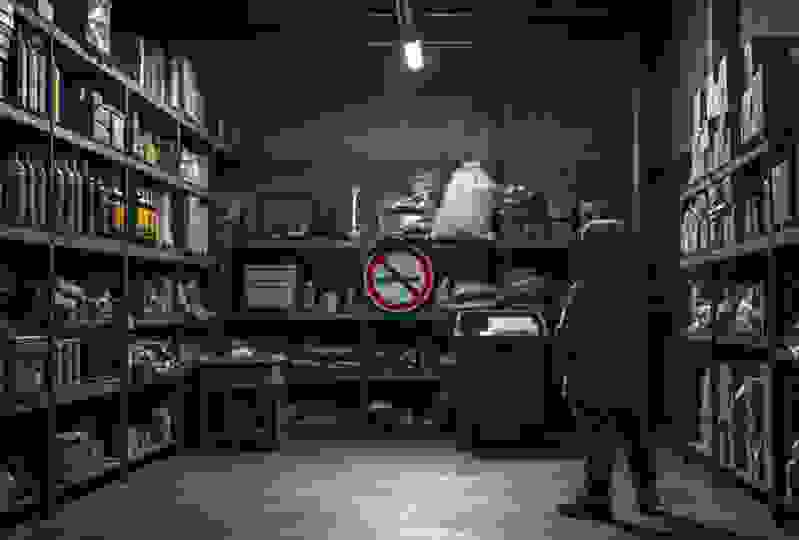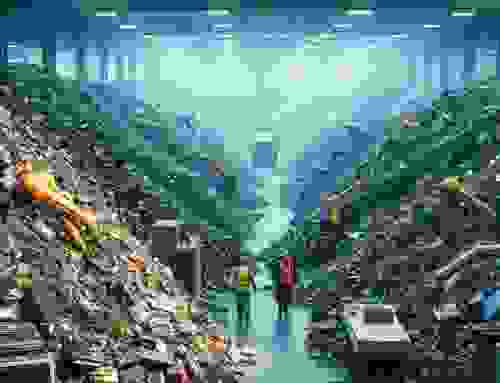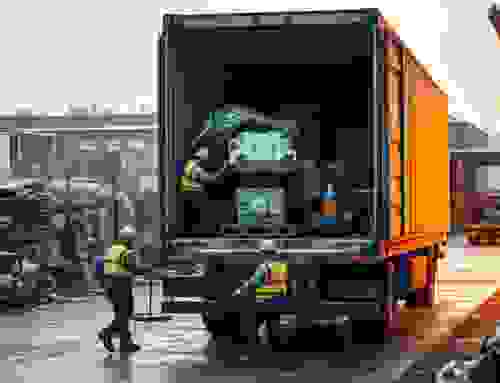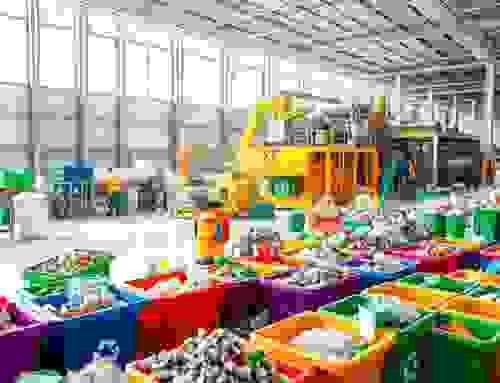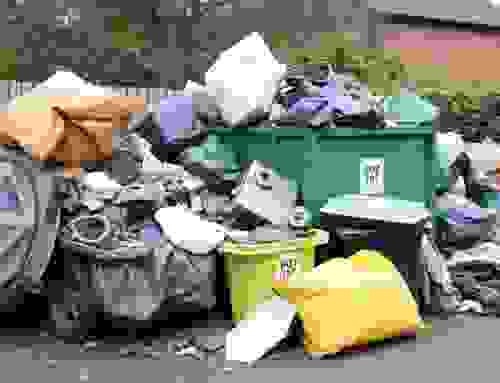It’s important to know what household waste dispose of it right. This includes things like trash, old furniture, garden waste, and DIY rubble. But, not everything can go in a skip. Knowing the difference can help avoid fines.
Skips are great for dealing with a lot of waste. But, some items like old furniture and electrical goods need special care. They must be disposed of legally and safely.
Recycling is key to managing waste well. Reusing items helps the planet and cuts down on landfill use. This step is important for adopting greener habits in the future.
Key Takeaways
- Household waste includes everyday rubbish, furniture, garden waste, and DIY materials.
- Not all items can be placed in a skip; some require special disposal methods.
- Recycling and reusing items can significantly reduce environmental impact.
- Proper waste disposal helps avoid legal penalties and supports sustainability.
Understanding Waste Disposal Guidelines
Good waste management starts with clear rules. Knowing what household waste is and what needs special care is key. This helps avoid problems.
Defining Household and Bulky Waste
Household waste includes things like kitchen trash and small furniture. But, bulky items like big appliances or construction materials need special services. They might even need a permit.
Local councils handle regular waste collection. But, bulky items might need special arrangements. Knowing this is important for following the rules.
Legal Obligations and Penalty Risks
Throwing away waste without checking can lead to fines. People must make sure private carriers are registered and have the right permit.
Choosing the right service avoids legal trouble. Council websites and the Environment Agency have lots of info on waste rules.
Understanding these guidelines is crucial for safe and legal waste management. It ensures we follow the rules and protect the environment.
What Can Go in Your Skip
Knowing what can go in a skip is vital for managing household waste. Skips can handle many items, but knowing the limits is important for safe disposal.
Accepted Household and Garden Waste
Skips can take a lot of household and garden waste. Things like kitchen trash, broken appliances, and garden trimmings are okay. Small furniture and DIY debris, like bricks or tiles, can also go in. But, always check with your provider for any specific rules.
- General household rubbish
- Garden waste like leaves and branches
- Small furniture items
- Construction materials from DIY projects
Recycling and Reuse Opportunities
Many items in skips can be recycled, reducing landfill use. Furniture and plastics can often be reused or repurposed. Sorting these items into separate bins or bags helps recycling centers work better. This helps the environment and supports sustainable living.
By sorting your rubbish, you help make waste management more eco-friendly. This ensures recyclable materials are handled right, benefiting your community and the planet.
Items That Cannot Be Placed in a Skip
Knowing what can’t go in a skip is just as important as knowing what can. Some items are too dangerous for standard skips. Let’s look at these items and why they need special care.
Hazardous Materials and Prohibited Items
Some materials are too dangerous for skips. Items like batteries, electrical goods, and chemicals are examples. Batteries, for instance, contain harmful metals that can pollute soil and water if not disposed of right. Electronics, like computers and phones, also have toxic materials that need special recycling.
Other items not allowed in skips include tyres, fluorescent light tubes, and asbestos. Tyres can release harmful fumes when burned, while fluorescent tubes contain mercury. Asbestos is especially dangerous because it can cause cancer, needing licensed professionals for safe removal.
Persistent Organic Pollutants in Upholstered Seating
Old upholstered furniture might have Persistent Organic Pollutants (POPs) from fireproofing. These harmful chemicals are banned because they last a long time and are bad for health. You can’t donate these items to charity shops or businesses. They must be thrown away through special services.
Check with your local council for how to get rid of bulky waste. They give clear rules for handling such items. Remember, throwing away items the wrong way can lead to fines and harm the environment. It’s important to dispose of them correctly.
Knowing what can’t go into a skip helps keep waste management safe and legal. Always choose the right way to get rid of waste to protect your community and the planet.
Efficient Waste Collection and Recycling Centres
Good waste management starts with the right recycling centres. These places are made to handle different types of waste safely and well.
Booking Appointments and Site Access
Going to a recycling centre usually needs an appointment. You can book a time online, so you arrive when you’re supposed to. You’ll need to show proof of who you are and where you live. Some centres have rules about vehicles, so it’s good to check first.
Local Council Services and Permits
Local councils give permits for big waste, making things clear and easy. They give tips on how to handle big items, making it simple for everyone.
Safe Separation and Sorting of Waste
Sorting waste at the recycling centre is key for recycling to work well. People should put metals, plastics, and glass in the right bins. This helps recycling and keeps things safe.
| Feature | Recycling Centre | Collection Service |
|---|---|---|
| Access | Requires appointment | Doorstep pickup |
| Vehicle Restrictions | Yes, check site for details | None, uses own vehicles |
| Permits | Needed for bulky items | Included in service |
By following these steps, people can manage their waste well. This helps make the environment better.
Effective Household Waste Disposal Practices
Organising household rubbish well keeps your home tidy and helps the environment. A few simple steps can make waste management easier.
Organising Waste Collection and Recycling
To make waste collection smooth, prepare your bin bags right and sort rubbish before collection day. This helps services work better and avoids delays.
- Prepare bin bags neatly and sort rubbish according to type.
- Ensure vehicles are parked properly to allow easy access for collection services.
- Consider using local tips or recycling centres for bulkier items.
For things like plasterboard, follow specific rules for recycling. This helps the environment and keeps you in line with local laws.
| Feature | Recycling Centre | Collection Service |
|---|---|---|
| Access | Requires appointment | Doorstep pickup |
| Vehicle Restrictions | Yes, check site for details | None, uses own vehicles |
| Permits | Needed for bulky items | Included in service |
By following these tips, you can handle household rubbish better. This makes your community cleaner and greener.
Conclusion
Proper waste management is key for everyone. Knowing what can and can’t go into a skip is important. This helps keep things legal and good for the environment.
For more info, check your local council’s website. They have the latest updates and specific rules for your area. Keeping up with these updates helps you follow the law and do your part for the planet.
Small actions can really help. For example, throwing away an old kettle right or sorting materials to avoid fires can make a big difference. These simple steps help keep our environment clean and safe for all.
It’s also important to keep prohibited items separate from recyclables. This helps recycling centers and keeps everyone safe. Taking the time to sort things correctly helps our community be more sustainable.
Lastly, visiting local recycling centers and following the advice in this guide is a good idea. This ensures you dispose of waste safely and responsibly. It helps make our future greener for everyone.
